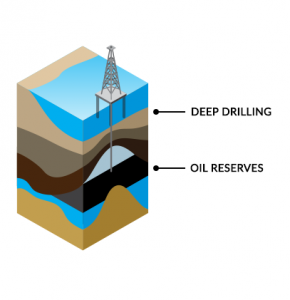All Categories
Featured
Table of Contents
Geophysicist Job Description in Aus 2023
Link with MBA programs seeking candidates like you. Study. Connect with master's programs around the nation to get an edge over the competitors.

A geophysicist studies numerous elements of the earth. According to the U.S. Geological Study, they study gravity, magnetic, electrical, and seismic activity occurrences. Geophysicists likewise record, examine, and take measurements of geographic functions and anomalies. See a video to discover what a geophysicist: Geophysicists need to make a minimum of a bachelor's degree; nevertheless, this is for an entry-level position.
If you want do research you must pursue a Ph. D. Undergrad coursework typically includes geology, mathematics, environmental science, or physics. Advanced degrees need more particular research studies in the specialty of choice. Areas can include oceanography, atmospheric physics, meteorology, planetary, petroleum, ecological, and mining. Job potential customers are higher if you have a strong background in computer technology or innovation.
What Can I Do With A Major In Geophysics? in Yokine WA 2020
Access to these opportunities may be restricted depending upon where you live; however, internships or summer programs with geophysical business, university geophysics department, or the U.S. Geological Survey can be options. You can discover a list of a list of chances on the United States Geological Study (USGS) sites' Pathway Programs tab (opens in another link).
If you have yet to graduate high school, taking as many science and mathematics classes as possible would be a plus. Geophysicists also work with computer systems while researching, so computer system courses can also be helpful, as discussed previously in this short article. Numerous geophysicists specialize in a location of geophysics. The task description would alter pending on the specialty.
A geophysicist's tasks can consist of measuring, tracking, and recording data from different physical residential or commercial properties on earth. Geophysicists typically have to take a trip worldwide to take a look at geological events that have actually occurred or might have been forecasted.
Geophysical Survey And Remote Sensing Techniques in South Fremantle Australia 2023
Jay Wellik, a geophysicist, studies volcanos. His area of know-how in geophysics is looking into why volcanos emerge and what indications there may be that an eruption might occur. He tracks seismic activity and after that follows what happens before, during, and after a volcano erupts. Geophysicists typically work full-time hours; nevertheless, they frequently work irregular hours, as mentioned previously.

You can find extra info about Geophysicists along with extra academic products on the U.S. Geological Study website (links open in a brand-new window). Laura Stern, of the U.S. Geological Survey at the Gas Hydrates Laboratory in Menlo Park, California: We make a variety of different hydrates in the lab.
We also make carbon dioxide hydrate, ethane hydrate, gas, a number of different structures. It's about 100 degrees chillier than the temperature at which these hydrate samples would dissociate, when they would break down to ice plus gas on the tabletop.
Geologists And Geophysicists in Trigg Australia 2023
The samples we make, their polycrystalline. They look like snow, it looks like compressed snow but honestly, it does contain gas inside. Take a little piece off here and as it heats up, you'll start to see it pop. It's going back to ice plus gas and after that as the ice would melt as it continues to warm, it will wind up being water plus gas.
My name is Steve Kirby, I'm a Geophysicist here at the U.S. Geological Study in Menlo Park. I deal with Laura Stern who is likewise a Geophysicist in this lab that is dedicated towards the examination of planetary ices and gas hydrates. Gas hydrates in nature happen in really remote places and they are very complex with the interactions and conditions that they form under and samples that are brought up are under some sort of alternation or decomposition.
This is an uncommon laboratory and there are only a handful of them worldwide and we are extremely lucky to be here at the Geological Study and to have the opportunity of working on them. Bureau of Labor Statistics, U.S. Department of Labor, Occupational Outlook Handbook, Geoscientists. National Center for O * Internet Development.
Uses For Geophysical Data in Bedford Western Australia 2023
This video was produced by the federal government for the U.S. Geological Study. The USGS Gas Hydrates Laboratory is moneyed by the Department of Energy and the USGS Gas Hydrates Task.
Latest Posts
Geophysical Survey In Archaeology in Neerabup Australia 2022
Geophysicists in Glen Forrest WA 2020
Geophysical Survey in Lockridge Oz 2023